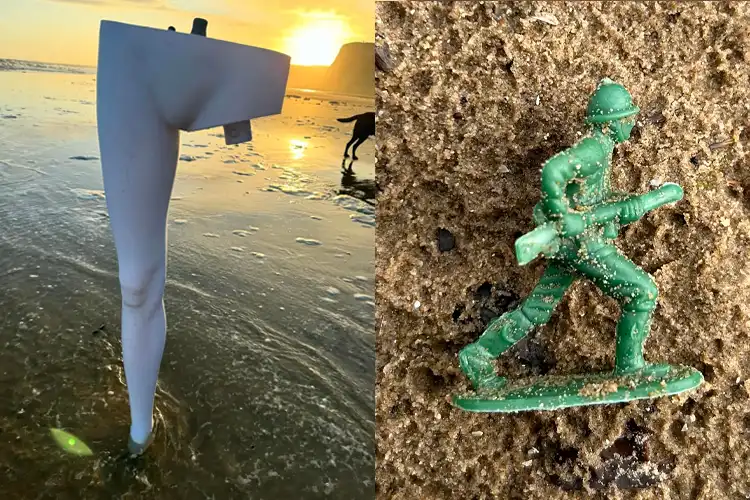
The Marine Conservation Society has reported that its annual Great British Beach Clean has turned up some weird – but not particularly wonderful – castaway items on the UKs beaches.
Between 20 and 29 September, 5,845 volunteers collected a staggering 6,048 kilograms of litter from beaches across the UK and the Channel Islands.
Volunteers recorded almost a quarter of a million (249,823) pieces of rubbish in the MCS Beach Clean survey, the data from which helps build a picture of coastal litter pollution for presentation to policymakers.
‘Thanks to thousands of volunteers, we’ll be able to inform policymakers what kind of litter is washing up on our beaches,’ said Clare Trotman, Beachwatch Officer at the Marine Conservation Society.
Related articles
- MCS beach clean results show need for deposit return scheme
- 80 per cent drop in carrier bags on UK beaches – MCS
- MCS ‘State of Our Beaches’ report highlights need to cut plastic pollution
- MCS report finds sewage litter across UK beaches
- Ocean Conservancy: five products to eliminate for plastic-free beaches

‘Earlier this year we revealed that there has been an 80 per cent drop in carrier bags washing up on beaches since the charges were introduced – and that’s exactly why we do what we do.
‘We know these kinds of policies work to reduce litter and protect marine life, but we need data to show what’s ending up in our seas.
‘Along the way, we do find some interesting pieces of litter! One that keeps puzzling me is how a full-size traffic barricade ended up on a beach in Anglesey. We’ll never know!’
The complete results from the charity will reveal results in its annual State of Our Beaches report in March 2025, reporting on trends and the most frequently found litter items from the last year.
In the meantime, the charity has shared some of the more unusual finds from this year’s cleanup operation – some of which highlight the scale of the problem involved in cleaning up the world’s oceans.


Other weird items that were recorded on survey forms by volunteers included an exhaust pipe, half a bed sheet, a piece of plastic Christmas tree, clay pigeons, a rusty fridge, a toilet seat, and a broomstick.
‘The strangest thing I found during this year’s Great British Beach Clean was the dog poo bags,’ said Cullen Allen, founder of Cully and Sully Soup, which sponsored this year’s event. ‘People went to all the effort to use a bag and then left the bag on the beach which definitely was not a pleasant find.
‘A huge thanks to all the great volunteers that keep collecting data on beach litter items so that the Marine Conservation Society can keep working for cleaner and healthier seas.’

Marine litter is among the biggest threats to the world’s oceans. The MCS’ 2023 State of Our Beaches report showed that nine of the top ten litter items were made of plastic, which presents a hazard both in large pieces, and in the form of microplastics as it breaks down.
Microplastics, which have been found in all marine environments and at all depths of the oceans can choke, poison or entangle marine life – they have even made their way into the human food chain through seafood.
The Marine Conservation Society, which has been running its annual beach cleans for the last 20 years, has been urging the UK Government to move faster on policies to cut down plastic waste and prevent such items from reaching the seas.
MCS volunteers run beach cleans year-round. To find out more and get involved, head to: www.mcsuk.org/what-you-can-do/join-a-beach-clean



